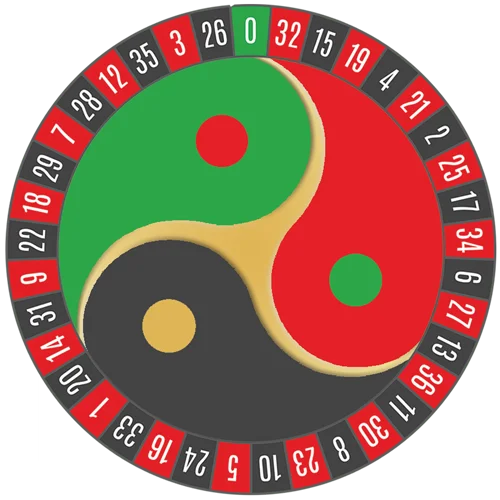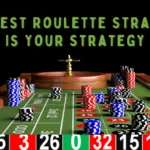As a passionate roulette player with extensive experience, I have gained a deep appreciation for the complex interplay between mathematics and human behavior that defines this captivating game.
A particular chapter in my journey to become a professional roulette player is when I started to explore the fascinating realm of dealer behavior and its profound impact on my roulette prediction. By observing dealers’ unique patterns, I uncover hidden insights into the roulette game and leverage them to enhance my chances of success.
RNG Roulette vs. Live Dealer Roulette
When it comes to classify the roulette prediction strategies, you can find online two distinct paths that appear clearly from my perspective:
- You will find a roulette prediction solution for RNG Roulette
RNG Roulette, also known as Random Number Generator Roulette, is a casino game that brings the thrill of a traditional roulette wheel to life through the power of cutting-edge technology. Designed to mimic the experience of a real roulette table, the game will give you the joy of watching the ball bounce around your favorite numbers but… Make no mistake: it’s just for show; the winning number has been chosen already!
- You find a roulette prediction solution for live dealer roulette where a human dealer throws the ball.
In live dealer roulette, where a human dealer expertly throws the ball, unpredictability is heightened for the house and the player. While the house will always have the “house edge” advantage, the game’s excitement remains intact when you find a way to gain over that edge.
The house advantage, also known as the house edge, is essential when playing live dealer roulette. It represents the statistical advantage that the casino holds over the players in the long run. On a standard single-zero European roulette wheel with 37 pockets numbered from 0 to 36, the house advantage is approximately 2.70%. This means that, on average, the casino will retain 2.70% of all bets placed over time. The remaining 97.30% is paid out as winnings to the players.
Mind Over Mathematics
My journey is more into the live dealer roulette prediction path because of the game’s unique dynamics and interactive nature. Unlike automated online roulette games, live dealer roulette offers an immersive experience that resembles playing at a physical casino. The presence of a human dealer adds an extra level of authenticity and excitement to each spin of the wheel.
One of the key reasons I am inclined toward live dealer roulette prediction is the opportunity to observe and analyze the dealer’s behavior. In my 20s, I worked for a summer as a roulette dealer, and I experienced firsthand the monotony and repetition of performing the same actions over and over for 20-30 minutes. This short adventure teaches me that dealers can exhibit behavior patterns, especially when doing mechanical tasks. I hope you see the irony here!
Mechanical tasks are repetitive actions that follow a set pattern, often performed consistently and predictably. These tasks are typically characterized by their routine nature and lack of significant variation. In live dealer roulette, mechanical tasks include spinning the wheel and throwing the ball. These actions are performed by dealers systematically and consistently, following house rules.
But, the repetition of these mechanical tasks allows for the emergence of patterns and behaviors that can be observed and analyzed by experienced roulette players.
Unveiling the Secrets of Dealer Behavior
While many roulette prediction strategies focus solely on the mathematical aspects of roulette to identify number patterns, they often overlook the dealer’s crucial role and behavior during gameplay. Despite their seemingly impartial role, dealers possess distinctive patterns and tendencies that significantly influencing the game’s outcome.
One intriguing aspect of dealer behavior lies in their mechanical ball-throwing technique. Through countless repetitions, dealers develop a specific motion and rhythm, unintentionally introducing an element of predictability into the game. While not infallible, these patterns offer valuable insights that can inform our betting strategies, making them an essential aspect of our gameplay analysis.
The Influence of Interaction
Another fascinating facet of dealer behavior revolves around their interaction with players. While dealers engage in conversation and maintain a friendly atmosphere, their attention may shift away from the mechanical tasks.
This diversion creates an opportunity to identify different patterns that can be effectively exploited. By attentively observing the dealer’s focus and the flow of their conversation, we can discern subtle cues and deviations that may impact future outcomes. These nuances, often overlooked by casual players, grant us a competitive edge by providing an extra layer of information.
The Power of Observation
In the realm of roulette prediction, observation becomes our greatest ally. Meticulously tracking dealer behavior allows us to uncover valuable insights that may elude the untrained eye. Pay close attention to each dealer’s distinctive style, throwing technique, and interactions with players is crucial.
By recognizing and analyzing the patterns that emerge from these observations, we can make more informed decisions and adjust our betting strategies accordingly.
Of course, here comes the pareidolia. Pareidolia is the tendency of the human brain to perceive meaningful patterns or images where none actually exist. It is a natural cognitive process that can cause us to see faces, objects, or patterns in random or ambiguous stimuli.
In visual perception, pareidolia can lead us to see familiar shapes in clouds, patterns in random noise, or even faces in inanimate objects.
In the context of roulette prediction, pareidolia can manifest when players believe they have identified patterns or trends in the game’s outcomes, even though these patterns are purely coincidental and not statistically significant.
I find it essential to approach roulette with a rational and objective mindset, aware of the potential for our brains to perceive patterns that are not present.
Harnessing Dealer Behavior for Success
Understanding dealer behavior patterns is not a standalone magic bullet that guarantees success in roulette prediction. However, it does provide us with a valuable tool that can be integrated into our ZenRoulette strategy. By combining our knowledge of dealer behavior with game dynamics, we can develop a comprehensive skill that maximizes our chances of achieving favorable outcomes.
Conclusion: Embracing the Dance of Dealer Behavior
In conclusion, underestimating the influence of dealer behavior on roulette prediction would be a grave mistake. By paying meticulous attention to the dynamics of dealer-player interaction, we can unlock hidden patterns that guide our betting decisions.
While chance undoubtedly plays a fundamental role in roulette, recognizing and leveraging these patterns empowers us to navigate the game with heightened confidence and strategic insight.
By mastering these interconnected elements, we elevate our roulette prediction skills to new heights, embarking on a thrilling adventure where intuition and strategy converge to forge a path toward success.
And the beauty of this roulette prediction approach is … discipline!
To have the discipline to play ONLY when you see a pattern is all you must master to exit the table with a win. Even when the pattern is not there!
Frequently Asked Questions
Yes, dealer behavior can indeed have a significant impact on roulette prediction. Dealers often develop consistent throwing techniques and patterns over time, which can introduce predictability into the game. Players can identify and use these patterns to improve their betting strategies by observing and analyzing their behavior.
Careful observation is critical to recognize patterns in a dealer’s throwing technique. Look for consistent ball landing zones, variations in the speed and trajectory of the ball, and any repetitive motions or gestures employed by the dealer. By paying attention to these details, you can start to discern patterns that may help you make more informed predictions.
During dealer-player interactions, paying attention to the dealer’s focus and the flow of their conversation is essential. Sometimes, dealers may need to be more focused or attentive to the game’s mechanics while engaging with players. By keenly observing these interactions, you can detect subtle cues and deviations that may impact future outcomes, giving you an advantage in your betting decisions.
No, dealer behavior is just one aspect to consider in roulette prediction. While it can provide valuable insights, it should be combined with other factors like game dynamics. By taking a comprehensive approach incorporating various elements, you can enhance your overall strategy and improve your chances of success.



